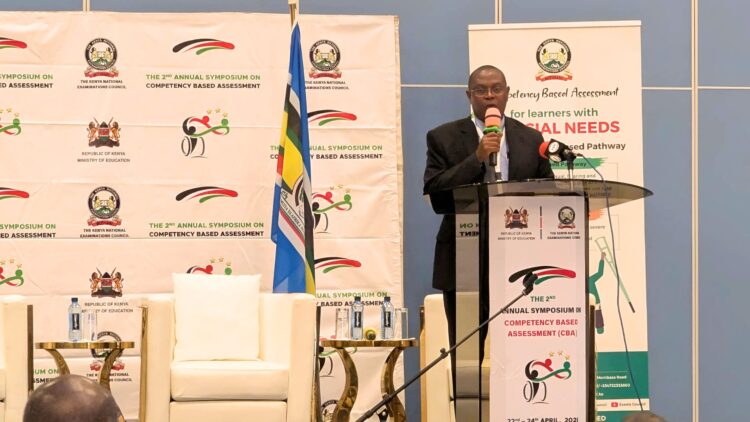KNEC Sets Stage for First Kenya Junior School Education Assessment.
The Kenya National Examination Council (KNEC) has confirmed its readiness to conduct the first Kenya Junior School Education Assessment, a key milestone under the Competency-Based Curriculum (CBC).
According to KNEC Chief Executive Officer Dr. David Njengere, the council has finalized the registration process for candidates and is currently verifying the data. He indicated that by the end of April, a comprehensive list of registered candidates will be published.
In Nairobi, key stakeholders have gathered for the second annual symposium on Competency-Based Assessment. Hosted by KNEC, the forum focuses on the interpretation of assessment data, reforming examination administration, and promoting equitable access to education.
During the meeting, Dr. Njengere emphasized the importance of identifying individual student progress from Grade Three onwards, enabling the council to assess equity challenges and recommend government interventions.
Reaffirming Commitment to CBC Objectives
Speaking at the symposium, Dr. Njengere reiterated KNEC’s commitment to aligning its initiatives with the CBC’s goals. He noted that the administration of the Kenya Junior Secondary Education Assessment later in the year reflects the council’s dedication to upholding the principles of competency-based learning and evaluation reforms.
KNEC Chairman Professor Julius Nyabundi, who presided over the symposium, praised the Ministry of Education for its progress in implementing reforms that prepare learners for evolving global demands.
He highlighted emerging debates, such as the suitability of compulsory mathematics, stressing the need for flexibility in subject choices based on learners’ interests and strengths.
Read Also: Education Stakeholders Demand Merit-Based Teacher Promotions, Recruitment and Deployment
Meanwhile, the Kenya Institute of Curriculum Development addressed concerns about subject selection in senior schools. It clarified that learners would not be compelled to take up subjects unfamiliar to them from junior school.
For instance, students interested in aviation would select subjects like physics and geography, which can be traced back to junior-level studies such as social studies, ensuring continuity in learning pathways.
KNEC Sets Stage for First Kenya Junior School Education Assessment.
Follow Teachers Updates on Facebook, LinkedIn, X (Twitter), WhatsApp, Telegram, and Instagram. Get in touch with our editors at [email protected].



Discussion about this post